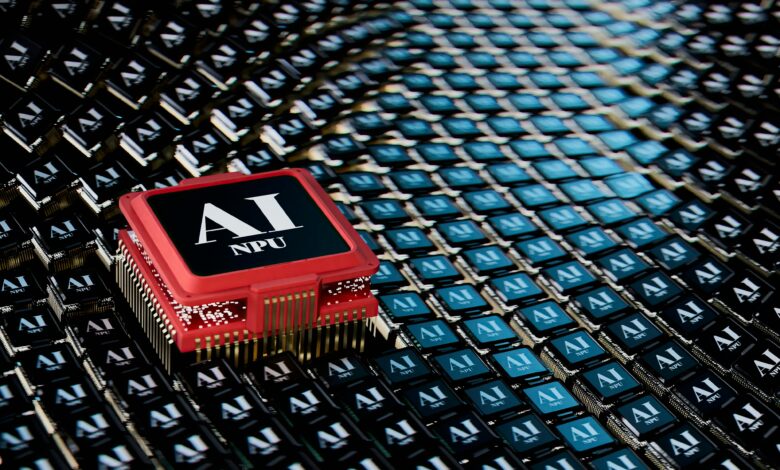
Artificial Intelligence (AI) is no longer a futuristic concept; it’s a part of our daily lives, seamlessly integrating into various aspects of our routines and transforming how we live, work, and interact. From smart assistants in our homes to personalized recommendations on our devices, Artificial Intelligence is reshaping our world in profound ways. This article explores the pervasive impact of Artificial Intelligence, highlighting its influence on communication, entertainment, healthcare, and transportation.
Revolutionizing Communication
One of the most noticeable ways Artificial Intelligence is changing our world is through enhanced communication. AI-powered virtual assistants like Siri, Alexa, and Google Assistant have become household names, assisting us with tasks such as setting reminders, playing music, and answering queries. These intelligent assistants rely on natural language processing (NLP) to understand and respond to human language, making interactions with technology more intuitive and user-friendly.
Moreover, Artificial Intelligence is transforming how we communicate through messaging apps. Features like predictive text and autocorrect, powered by machine learning algorithms, improve our typing efficiency and accuracy. AI also plays a crucial role in spam detection and filtering, ensuring that our inboxes are free from unwanted messages.
In the business realm, Artificial Intelligence is revolutionizing customer service. Chatbots, powered by AI, are increasingly used by companies to handle customer inquiries and provide support around the clock. These chatbots can answer frequently asked questions, process orders, and even troubleshoot issues, significantly enhancing customer satisfaction and reducing response times.
Enhancing Entertainment
The entertainment industry is another area where Artificial Intelligence is making a significant impact. Streaming services like Netflix, Spotify, and YouTube utilize AI algorithms to analyze user preferences and viewing habits, offering personalized recommendations tailored to individual tastes. This not only improves user experience but also helps content creators reach their target audiences more effectively.
In gaming, Artificial Intelligence is used to create more realistic and engaging experiences. AI-driven characters and opponents can adapt to players’ strategies, providing dynamic and challenging gameplay. Additionally, procedural content generation, powered by AI, enables the creation of vast and varied game worlds, offering players a unique experience every time they play.
Furthermore, Artificial Intelligence is being used in the creation of content. AI-driven tools can generate music, write articles, and even create visual art. For instance, OpenAI’s GPT-3, a powerful language model, can write human-like text, while AI algorithms like DeepArt can transform photos into paintings in the style of famous artists. These advancements are pushing the boundaries of creativity and expanding the possibilities of content creation.
Transforming Healthcare
The healthcare industry is witnessing a transformative shift with the integration of Artificial Intelligence. AI-powered tools are enhancing diagnostic accuracy, streamlining administrative processes, and improving patient care. For instance, AI algorithms can analyze medical images, such as X-rays and MRIs, to detect abnormalities and assist doctors in diagnosing conditions like cancer and heart disease with high precision.
Artificial Intelligence is also revolutionizing personalized medicine. By analyzing large datasets of patient information, AI can identify patterns and predict which treatments are most likely to be effective for individual patients. This tailored approach can lead to better outcomes and reduce the trial-and-error nature of traditional treatments.
In addition to diagnostics and treatment, Artificial Intelligence is improving patient monitoring and care management. Wearable devices equipped with AI algorithms can track vital signs and detect early warning signs of health issues, enabling timely interventions. Moreover, AI-powered platforms can assist in managing chronic diseases by providing personalized recommendations and reminders for medication and lifestyle changes.
Revolutionizing Transportation
The transportation sector is undergoing a significant transformation, thanks to Artificial Intelligence. Self-driving cars, once a science fiction concept, are becoming a reality with the help of AI. Companies like Tesla, Waymo, and Uber are developing autonomous vehicles that can navigate roads, interpret traffic signals, and avoid obstacles using AI-powered sensors and algorithms. These self-driving cars have the potential to reduce accidents, improve traffic flow, and provide mobility solutions for people who cannot drive.
Artificial Intelligence is also enhancing public transportation systems. AI algorithms are used to optimize routes, reduce congestion, and improve the efficiency of buses and trains. For example, AI can analyze real-time data on passenger numbers and traffic conditions to adjust schedules and routes dynamically, ensuring a smoother and more reliable service.
Moreover, Artificial Intelligence is transforming logistics and delivery services. AI-driven robots and drones are being used for last-mile deliveries, reducing delivery times and costs. These technologies can navigate complex environments and deliver packages with precision, providing a glimpse into the future of logistics.
Conclusion
Artificial Intelligence is undeniably changing our world, infiltrating various aspects of our daily lives and reshaping industries. From revolutionizing communication with smart assistants and chatbots to enhancing entertainment through personalized recommendations and AI-driven content creation, the impact of AI is profound. In healthcare, Artificial Intelligence is improving diagnostics, personalizing treatments, and enhancing patient care, while in transportation, it is paving the way for self-driving cars and optimizing public transit systems.
As Artificial Intelligence continues to evolve, its influence will only grow, bringing both opportunities and challenges. Embracing these advancements while addressing ethical considerations, privacy concerns, and the potential for job displacement will be crucial in ensuring that Artificial Intelligence benefits society as a whole. The future, powered by Artificial Intelligence, holds immense promise, and it is up to us to navigate this transformative journey wisely.




